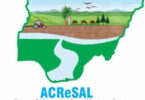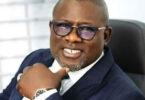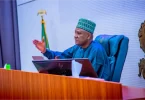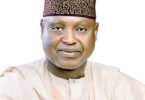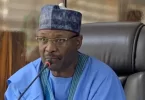As the protest against bad governance enters the seventh day, MUHAMMED SABIU and WALE AKINSELURE write on the twists and turns that have created mixed feelings about the protest planned for 10 days.
IT is yet another moment of a deep reflection on the state of the nation after days of protests triggered by what those behind it tagged #EndBadGovernance. Stakeholders in the Nigerian project are still busy counting majorly the losses so far inflicted on the country. Many protesters have lost their lives, public and private properties destroyed and many arrested by law enforcement agencies as the protest turned bloody in some states, even after President Bola Tinubu addressed the nation three days into the 10-day protest. Reeling out the various programmes initiated by his administration to revive the economy, tackle hunger and empower the citizens, the president appealed to the protesters to sheathe the sword and embrace peace.
As the organizers of the protest began the countdown to August 1 date for the beginning of the protest, some leaders of thought across the six geopolitical zones stepped up moves to safeguard the fragile peace and tranquility in the country, having been tickled by the authorities on the need for collaboration. Beyond the collaboration, the Federal Government was believed to have tacitly prompted security agencies to exercise utmost restraint when dealing with the populace. The subtle directive was said to be part of the frantic efforts by the government further calming nerves, douse tension and stave off issues that could exacerbate public anger and frustration. In other words, the move was designed to avert the protests. Feelers showed that the government asked personnel of law enforcement agencies to become more circumspect and civil in handling issues while discharging their primary function of maintaining law and order in the society. While they were not required to hold back on their statutory functions, the authorities cautioned against any act of arbitrariness that could cause serious disaffection and raise the high temperature in the land.
Close to August 1, the nation’s security architecture, including the intelligence service, the Armed Forces, Nigeria Police Force and the Immigration Service, had been upbeat, literarily blowing hot and cold to complement the desperate efforts by some senior citizens to dissuade the promoters of the proposed protest. The new spirit of geniality and olive branch from the official circle was further underscored by the Nigerian Communications Commission (NCC) which overruled the decision of service providers to deactivate the lines of subscribers yet to link their National Identification Number (NIN) with their Subscriber Identification Modules (SIMs).
The Minister of Aviation, Mr Festus Keyamo also reversed in the 800 percent hike in navigational charge announced by the Nigerian Airspace Management agency (NAMA), an increase that triggered angry reactions among passengers and other stakeholders in the aviation industry. In a similar move to rally the citizens, the Federal Government suspended import duties, taxes on essential food items to address food inflation. The Comptroller-General of the Nigerian Customs Service, Adewale Adeniyi, Bashir Adeniyi said the suspension of import duties and taxes on essential food items would make basic necessities more affordable for Nigerians and address the prevalent food inflation in the nation. Adeniyi acknowledged the widespread economic challenges and outlined the government’s commitment to easing the financial burden on its citizens.
Volatile states
The spirited moves by the government notwithstanding, the likelihood of the protest taking place was not ruled out. So, the authorities considered other options capable of containing the impact. The government made conscious efforts to guard against inflammable issues in some states categorised as politically volatile in the North-West, South-South and the North-Central. One of them is Kano, where there is still disquiet in the city, following the dethronement of the Emir of Kano. Rivers State in the South-South was also in the category of such states, was believed to be on edge, due to the political rivalry between Governor Simi Fubara and his predecessor/Minister of the Federal Capital Territory (FCT), Mr Nyesom Wike over the soul of the oil-bearing state. The government equally tried to work out a pragmatic approach towards lowering the rising political temperature in Kaduna State, where two hitherto allies are at each other’s throat over sundry issues relating to the immediate past state administration. On his part, President Tinubu urged the youth to call off the planned protest, saying he had listened to their request and was favourable to dialogue. Governors also begged the youth to call of the plan because of tenuous state of the economy, security and infrastructures, noting that the country is yet to recover from the aftermaths of the 2020 #Endsars protest.
Prelude
A major face in the protest, Omoyele Sowore, had raised the alarm about the arrest of some persons in connection with arrangements for the protest. But, the Department of State Services (DSS) denied the initial reports that its operatives arrested one Bashir Abubakar in Kano State for allegedly printing T-shirts with the inscription ‘#EndBadGovernanceInNigeria’ ahead of the proposed nationwide protest. Sowore, who was the African Action Congress (AAC) presidential candidate in the 2023 elections, had, on his official X handle, alleged that Bashir was arrested by the DSS. However, the spokesperson of the secret police, Peter Afunanya denied the claim. In another development, Sowore was quoted to have said that the two youths: Engineer Khalid Aminu and Aliyu Sanusi allegedly arrested over planned #EndBadGovernment protest regained their freedom. According to Somore, while Khalid was arrested for allegedly mobilising for the #EndBadGovernanceInNigeria protest in Kaduna State, Aliyu Sanusi was picked up for on July 23 in Sokoto State for distributing #EndBadGovernanceInNigeria material.
Russian flag controversy
As the nationwide protest entered the fifth day on Monday, protesters in Kaduna, were seen waving Russian flags to express their disenchantment over the suffering in Nigeria. A similar episode had characterised the first day of the protest in Kano. However, on the fifth day, more protesters in states like Kaduna, Zamfara, and Jigawa were spotted with the Russian flag raising questions about the development. It should be noted that diplomatic relations between Nigeria and Russia were established on November 25, 1960. But the then Prime Minister of Nigeria, Sir Abubakar Balewa adopted a pro-West foreign policy. Balewa’s government banned the circulation of communist literature in Nigeria, as well as discouraged Nigerian students from taking Soviet Union scholarships. Balewa had personally assured the British government that, “We shall use every means in our power to prevent the infiltration of communism and communist ideas into Nigeria.” Successive governments after Balewa retained the pro-western allegiance until the recent happening in Niger Republic.
Several reasons are being adduced by observers and pundits for the waving of the Russian flag by protesters, especially in the North. A public affairs analyst, Shehu Idris claimed the seeming sour diplomatic relations between Nigeria and the Niger Republic could be one of the reasons, as the latter has severed cordial tie with its colonial master, France. Idris claimed that the non-symbiotic relationship between France and its former colonies is well known, so, the people of the North want a shift to Russia they consider as a lesser evil.
Another reason being advanced is the alleged Shiite connection with the protest. A source, who preferred to remain anonymous for his personal safety and security, said: “You know these protesters cannot just be waving the Russian flags; definitely, there are sponsors. When you consider the Shite connection with Iran, you will agree with me on that score.” One of the protesters in Kaduna, who spoke in an interview, also claimed: “Our romance with Britain and its Western allies for over six decades has not yielded anything. The protester, who spoke on top of his voice under anonymity said: “We are tired of the system. Let us have a new thing.” Speaking in the same vein, another aggrieved youth, who gave his name as Abubakar Ibrahim, narrated how he came about the controversial flag. He said: “I used my money to buy three different clothes of white, blue and red and gave it to tailor to turn it to Russian flag. Why? It’s because our brothers in Niger Republic are now happy, following the country’s romance with Russia. The leaders of that country are making life favourable to their citizens.” He said he and other protesters “came out because we thought the president’s broadcast will be on solutions to our multifaceted problems.” The Russian embassy in Nigeria has since denied any involvement with the use of its flag by the group of protesters in northern Nigeria. In a statement on Monday, the embassy emphasised that Russia does not interfere in the internal affairs of other countries, including Nigeria, and that the protesters’ actions do not reflect any official Russian government policy or position. The statement said: “The embassy has noted the reports in Nigerian media and the circulation of videos and images in digital media depicting protesters in northern states of the country carrying Russian flags and chanting slogans to Russian President, Vladimir Putin. The government of the Russian Federation, as well as any Russian officials are not involved in these activities and do not coordinate them in any way. As always, we emphasize that Russia does not interfere in the domestic affairs of foreign states, including Nigeria. These intentions of some protesters to wave Russian flags are personal choices of individuals, and they do not reflect any official position or policy of the Russian Government in the issue.”
Apprehension
However, it is not just the presidency and the security agencies that expressed concern following the Russian flag controversy. A former Director of the Department of State Services (DSS), Mr Mike Ejiofor, described the action of the protesters as a “dangerous development” and a dimension that must be stopped immediately. Ejiofor observed that the development pointed to the possibility of foreign influence in the protests, though he said it might be hasty to conclude that there were also internal collaborators. He noted that on the surface, it followed the trend in some neighbouring West African countries where foreign interests, particularly Russia, preceded the disruption of their governance structures. He stated: “This is a dangerous development, in view of the fact that intelligence from the SSS before these protests, suggested that they (protesters) have foreign support. Even if they don’t have people inside supporting it, there is bound to be some infiltration. Don’t also forget the role Russia is playing in Niger and Burkina Faso and the proximity to Nigeria; they can exploit it and use some of these disgruntled elements. However, I believe that the government should, using the security agencies, be on top of the situation, to nip in the bud, any nefarious activities. The citizens on their part should be very security conscious by giving information to the security agencies. We are still contending with internal security challenges, then now you have foreign elements; that will be very bad for us.”
The former secret police chief, who called for the arrest and prosecution of those openly waving the Russian flag, warned that if the matter was treated with levity, it could in the long run, undermine the sovereignty of Nigeria if it festered. “I wouldn’t say it will undermine Nigeria’s sovereignty as we speak, but the fact remains that it can’t be downplayed. That is why the government should view it seriously, identify those behind it and possibly prosecute them because if it is allowed to fester, it will undermine our sovereignty,” he said.
A former top military brass, who said he was still studying the situation following the protests, also expressed disgust over the strange twist to the protest. He is of the opinion that the bane of Nigeria is incompetent leadership arising from a faulty recruitment procedure, and not affiliation with perceived global power bloc in the light of the military rule in neighbouring countries. “The cat will soon be let out of the bag. All the deceit, deception and hypocrisy will soon be exposed. What can the waving of the flag achieve or do for us as a country? Are they suggesting that Russia should take over Nigeria? Do they want a totalitarian government? They should go and ask Russian nationals what they are passing through. What we are looking for are good people, who can manage the resources of Nigeria for the betterment of the citizens. Period! The tendency to resort to tribalism, coupled with religious bigotry amounts to a load of shame. It has nothing or relation with the managing the people,’ the former military officer said.
But one of the leading lights in the Civil Society Organisations (CSOs), Professor Anthony Kila said the waving of the Russian flag could be viewed and rationalised under two perspectives. He recalled some notable Nigerian politicians once brought Nigerien nationals to campaign for them during major elections. Besides, Professor Kila said those waving the Russian could be among aliens that have consistently exploited the porous Nigerian border to infiltrate the rank Nigerians protesting against economic hardship in Nigeria. “I don’t know if it is frightening as a scholar. Three things are going in the course of the protests. Number one is about the porous Nigerian borders that we have talked about over and over again. I suspect that the people waving the Russian flag are either Nigeriens or have influence of contacts with Niger. It means part of the protest is being influenced by Nigeriens. It is either themselves are Nigeriens or people who are at the top in Niger,” Professor Kila said.
SWAGA calls for peace
The South-West agenda for Asiwaju (SWAGA) called protesters to embrace the olive branch of President Bola Tinubu by sheathing the sword. In a statement by the national secretary of SWAGA, Honourable Bosun Oladele, he decried the damage caused by the last few days of protests in parts of the country.” Now that the president has spoken, he has left no one in doubt about his good intentions and commitment to ensuring better life for Nigerians, we hereby call on protesters to sheath their swords, call off the protests and support the government in driving the reforms towards a better Nigeria. From the records, not only has the protests turned violent in some states many Nigerians have suffered severe economic loss from the looting witnessed in some places while government properties have been vandalised thus putting further pressure on scarce resources that will be mobilized to replace and rebuild them.
“In summary some people have become poorer due to the ill-advised protest while the economy of the country has taken a severe hit for same. The president has restated in his speech the effort of his administration to deliver on his promises to Nigerians and all he has said are verifiable. What is remaining is for us as a people to be patient, have faith, trust and join hands with the government to create a future that we all can be proud of. We, as a group, believe in the think and do ability of Mr. President and we appeal to the generality of Nigerians to be patient and trust the process and build together.
SWAGA claimed that through his national broadcast, President Tinubu touched on all areas of concern to Nigerians and demonstrated the needed empathy to the citizens. It added: “Nothing could be more apt at this time. We also enjoin the media to continue to sensitize and enlighten the people about the policies and programs of the government. We urge a return to normalcy across the country so that people can go about their daily business in peace.”
READ ALSO: #EndBadGovernance protests: Flying of Russian flag, calls for military coup treasonable — Police


